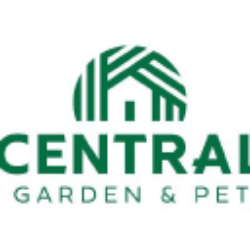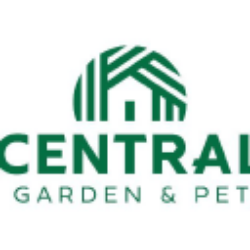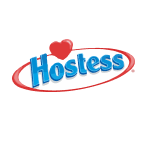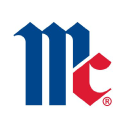RGF
The Real Good Food Company, Inc.
RGF
(2.2)3,70 USD
-6.18% ROA
-28.86% ROE
-0.36x PER
11.711.958,00 USD
502.04% DER
0% Yield
-9.47% NPM
The Real Good Food Company, Inc. Stock Analysis
The Real Good Food Company, Inc. Fundamental Analysis
Fundamental analysis in stock investing is like studying the foundation of a house before buying it. It involves looking at a company's financial health, like its earnings, assets, and debts, to determine if it's a good investment based on its fundamental strength and potential for growth.
| # | Analysis | Rating |
|---|---|---|
| 1 |
ROE
The stock's ROE exceeds expectations (27.31%), revealing strong profitability and efficient use of shareholders' equity, making it an attractive investment opportunity. |
|
| 2 |
PBV
With a remarkably low PBV ratio (0.45x), the stock offers substantial upside potential at a bargain price. |
|
| 3 |
Assets Growth
This company's revenue has experienced steady growth over the last five years, indicating a reliable and prosperous financial trajectory. |
|
| 4 |
ROA
The stock's ROA (7.35%) shows that it's doing a pretty good job at making money from its assets, making it a solid choice to invest and earn steady profits. |
|
| 5 |
Graham Number
The company's Graham number suggests that its stock price is underestimated, implying that it may present a compelling investment opportunity. |
|
| 6 |
Buffet Intrinsic Value
The company's stock presents an enticing opportunity as it appears undervalued (32) by Warren Buffett's formula, indicating that its intrinsic value exceeds the market price. |
|
| 7 |
DER
The stock is burdened with a heavy load of debt (446%), making it financially unstable and potentially risky for investors. |
|
| 8 |
Revenue Growth
Company has experienced no growth in revenue over the past three years, suggesting limited profitability and making it a less desirable investment opportunity. |
|
| 9 |
Net Profit Growth
This company's net profit has remained stagnant over the past five years, indicating a lack of growth and making it a less favorable investment option. |
|
| 10 |
Dividend Growth
The company's dividend growth has been flat for the past three years, raising concerns for potential investors seeking reliable returns. |
|
| 11 |
Dividend
The company's decision to withhold dividends for three years raises questions about its ability to generate consistent returns. |
The Real Good Food Company, Inc. Technical Analysis
Technical analysis in stock investing is like reading the patterns on a weather map to predict future weather conditions. It involves studying past stock price movements and trading volumes to make predictions about where a stock's price might go next, without necessarily looking at the company's financial health.
| # | Analysis | Recommendation |
|---|---|---|
| 1 | Awesome Oscillator | Buy |
| 2 | MACD | Buy |
| 3 | RSI | Sell |
| 4 | Stoch RSI | Sell |
The Real Good Food Company, Inc. Price Chart
Financial Statements
Financial statements are like report cards for companies. They show how much money a company makes (income statement), what it owns and owes (balance sheet), and where it spends its money (cash flow statement), helping stock investors understand if a company is healthy and worth investing in.
Income Statements
An income statement for a company is like a scoreboard for its profits and losses. It shows how much money the company made (revenue) and how much it spent to make that money (expenses), helping stock investors see if a company is making a profit or not.
Revenue in stock investing is the total amount of money a company earns from its sales, and it's a key factor that investors consider to assess a company's financial performance and growth potential.
| Year | Revenue | Growth |
|---|---|---|
| 2019 | 38.743.000 | |
| 2020 | 38.984.000 | 0.62% |
| 2021 | 84.085.000 | 53.64% |
| 2022 | 141.588.000 | 40.61% |
| 2023 | 222.260.000 | 36.3% |
Research and Development Expenses are the costs a company incurs to create and improve its products or services, which can be important for investors to evaluate a company's innovation and potential for future growth.
| Year | Research and Development Expenses | Growth |
|---|---|---|
| 2019 | 0 | |
| 2020 | 0 | 0% |
| 2021 | 2.000.000 | 100% |
| 2022 | 0 | 0% |
| 2023 | 17.600.000 | 100% |
General and Administrative Expenses are the costs a company incurs to run its day-to-day operations, such as office rent, salaries, and utilities, which investors consider to understand a company's overall efficiency and management effectiveness.
| Year | General and Administrative Expenses | Growth |
|---|---|---|
| 2019 | 2.409.000 | |
| 2020 | 2.592.000 | 7.06% |
| 2021 | 27.792.000 | 90.67% |
| 2022 | 25.011.000 | -11.12% |
| 2023 | 40.488.000 | 38.23% |
EBITDA stands for Earnings Before Interest, Taxes, Depreciation, and Amortization. It is a measure that helps stock investors analyze a company's profitability by looking at its earnings without considering certain expenses. This helps to get a clearer picture of the company's financial performance and its ability to generate cash flow.
| Year | EBITDA | Growth |
|---|---|---|
| 2019 | -8.290.000 | |
| 2020 | -9.269.000 | 10.56% |
| 2021 | -60.588.000 | 84.7% |
| 2022 | -35.044.000 | -72.89% |
| 2023 | -35.456.000 | 1.16% |
Gross profit is the money a company makes from selling its products or services after subtracting the cost of producing or providing them, and it is an important measure for investors to understand a company's profitability.
| Year | Gross Profit | Growth |
|---|---|---|
| 2019 | 5.824.000 | |
| 2020 | 2.678.000 | -117.48% |
| 2021 | 10.294.000 | 73.98% |
| 2022 | 13.249.000 | 22.3% |
| 2023 | 46.352.000 | 71.42% |
Net income in stock investing is like the money a company actually gets to keep as profit after paying all its bills, and it's an important measure to understand how well a company is doing financially.
| Year | Net Profit | Growth |
|---|---|---|
| 2019 | -19.519.000 | |
| 2020 | -15.562.000 | -25.43% |
| 2021 | -30.585.000 | 49.12% |
| 2022 | -10.982.000 | -178.5% |
| 2023 | -17.744.000 | 38.11% |
EPS, or earnings per share, is a measure that shows how much profit a company has earned for each outstanding share of its stock, and it is important for stock investors as it helps understand the profitability of a company and compare it with other companies in the market.
| Year | Earning per Share (EPS) | Growth |
|---|---|---|
| 2019 | -3 | |
| 2020 | -3 | -50% |
| 2021 | -5 | 50% |
| 2022 | -2 | -300% |
| 2023 | -2 | 50% |
Cashflow Statements
Cashflow statements show the movement of money in and out of a company, helping stock investors understand how much money a company makes and spends. By examining cashflow statements, investors can assess if a company is generating enough cash to pay its bills, invest in growth, and provide returns to stockholders.
Free cash flow is the leftover cash that a company generates after covering its operating expenses and capital expenditures, which is important for stock investors as it shows how much money a company has available to invest in growth, pay dividends, or reduce debt.
| Year | Free Cashflow | Growth |
|---|---|---|
| 2019 | -11.414.000 | |
| 2020 | -7.903.000 | -44.43% |
| 2021 | -29.289.000 | 73.02% |
| 2022 | -61.007.000 | 51.99% |
| 2023 | -3.052.000 | -1898.92% |
Operating cash flow represents the cash generated or consumed by a company's day-to-day operations, excluding external investing or financing activities, and is crucial for stock investors as it shows how much cash a company is generating from its core business operations.
| Year | Operating Cashflow | Growth |
|---|---|---|
| 2019 | -10.916.000 | |
| 2020 | -7.754.000 | -40.78% |
| 2021 | -26.755.000 | 71.02% |
| 2022 | -57.282.000 | 53.29% |
| 2023 | -2.265.000 | -2429.01% |
Capex, short for capital expenditures, refers to the money a company spends on acquiring or upgrading tangible assets like buildings, equipment, or technology, which is important for stock investors as it indicates how much a company is investing in its infrastructure to support future growth and profitability.
| Year | Capital Expenditure | Growth |
|---|---|---|
| 2019 | 498.000 | |
| 2020 | 149.000 | -234.23% |
| 2021 | 2.534.000 | 94.12% |
| 2022 | 3.725.000 | 31.97% |
| 2023 | 787.000 | -373.32% |
Balance Sheet
Balance sheets provide a snapshot of a company's financial health and its assets (such as cash, inventory, and property) and liabilities (like debts and obligations) at a specific point in time. For stock investors, balance sheets help assess the company's overall worth and evaluate its ability to meet financial obligations and support future growth.
Equity refers to the ownership interest or stake that shareholders have in a company, representing their claim on its assets and earnings after all debts and liabilities are paid.
| Year | Equity | Growth |
|---|---|---|
| 2019 | -14.748.000 | |
| 2020 | -30.167.000 | 51.11% |
| 2021 | 30.985.000 | 197.36% |
| 2022 | -8.104.000 | 482.34% |
| 2023 | -43.716.000 | 81.46% |
Assets represent the valuable resources that a company owns, such as cash, inventory, property, and equipment, and understanding a company's assets helps investors assess its value and potential for generating future profits.
| Year | Assets | Growth |
|---|---|---|
| 2019 | 15.298.000 | |
| 2020 | 15.470.000 | 1.11% |
| 2021 | 102.144.000 | 84.85% |
| 2022 | 131.439.000 | 22.29% |
| 2023 | 151.712.000 | 13.36% |
Liabilities refer to the financial obligations or debts that a company owes to creditors or external parties, and understanding a company's liabilities is important for investors as it helps assess the company's financial risk and ability to meet its obligations.
| Year | Liabilities | Growth |
|---|---|---|
| 2019 | 30.046.000 | |
| 2020 | 45.637.000 | 34.16% |
| 2021 | 71.159.000 | 35.87% |
| 2022 | 139.543.000 | 49.01% |
| 2023 | 195.428.000 | 28.6% |
The Real Good Food Company, Inc. Financial Ratio (TTM)
Valuation Metrics
- Revenue per Share
- 10.24
- Net Income per Share
- -0.97
- Price to Earning Ratio
- -0.36x
- Price To Sales Ratio
- 0.13x
- POCF Ratio
- -0.24
- PFCF Ratio
- -0.83
- Price to Book Ratio
- 0.11
- EV to Sales
- 1.71
- EV Over EBITDA
- -7.96
- EV to Operating CashFlow
- -12.01
- EV to FreeCashFlow
- -10.99
- Earnings Yield
- -2.81
- FreeCashFlow Yield
- -1.21
- Market Cap
- 0,01 Bil.
- Enterprise Value
- 0,16 Bil.
- Graham Number
- 8.38
- Graham NetNet
- -16.21
Income Statement Metrics
- Net Income per Share
- -0.97
- Income Quality
- 0.47
- ROE
- -0.29
- Return On Assets
- -0.06
- Return On Capital Employed
- -0.21
- Net Income per EBT
- 0.31
- EBT Per Ebit
- 1.42
- Ebit per Revenue
- -0.21
- Effective Tax Rate
- 0.38
Margins
- Sales, General, & Administrative to Revenue
- 0.21
- Research & Developement to Revenue
- 0.1
- Stock Based Compensation to Revenue
- 0.04
- Gross Profit Margin
- 0.18
- Operating Profit Margin
- -0.21
- Pretax Profit Margin
- -0.3
- Net Profit Margin
- -0.09
Dividends
- Dividend Yield
- 0
- Dividend Yield %
- 0
- Payout Ratio
- 0
- Dividend Per Share
- 0
Operating Metrics
- Operating Cashflow per Share
- -1.46
- Free CashFlow per Share
- -1.59
- Capex to Operating CashFlow
- -0.09
- Capex to Revenue
- 0.01
- Capex to Depreciation
- 0.38
- Return on Invested Capital
- -0.04
- Return on Tangible Assets
- -0.06
- Days Sales Outstanding
- 119.74
- Days Payables Outstanding
- 225.15
- Days of Inventory on Hand
- 284.71
- Receivables Turnover
- 3.05
- Payables Turnover
- 1.62
- Inventory Turnover
- 1.28
- Capex per Share
- 0.14
Balance Sheet
- Cash per Share
- 0,01
- Book Value per Share
- -4,92
- Tangible Book Value per Share
- -6.33
- Shareholders Equity per Share
- 3.22
- Interest Debt per Share
- 17.1
- Debt to Equity
- 5.02
- Debt to Assets
- 0.95
- Net Debt to EBITDA
- -7.36
- Current Ratio
- 1.56
- Tangible Asset Value
- -0,06 Bil.
- Net Current Asset Value
- -0,10 Bil.
- Invested Capital
- 89944000
- Working Capital
- 0,03 Bil.
- Intangibles to Total Assets
- 0.08
- Average Receivables
- 0,03 Bil.
- Average Payables
- 0,04 Bil.
- Average Inventory
- 54669500
- Debt to Market Cap
- 12.26
Dividends
Dividends in stock investing are like rewards that companies give to their shareholders. They are a portion of the company's profits distributed to investors, typically in the form of cash payments, as a way for them to share in the company's success.
| Year | Dividends | Growth |
|---|
The Real Good Food Company, Inc. Profile
About The Real Good Food Company, Inc.
The Real Good Food Company, Inc., through its subsidiary, Real Good Foods, LLC operates as a health and wellness focused frozen food company in the United States. The company develops, manufactures, and markets foods designed to be high in protein, low in sugar, and made from gluten- and grain-free ingredients. It offers comfort foods, such as bacon wrapped stuffed chicken, chicken enchiladas, grain-free cheesy bread breakfast sandwiches, and various entrée bowls under the Realgood Foods Co. brand name, as well as sells private-label products. The company serves retailers, which primarily sell its products through natural and conventional grocery, drug, club, and mass merchandise stores. It also sells its products through its e-commerce channel, which includes direct-to-consumer sales through its website, as well as through its retail customers' online platforms. The company was formerly known as Project Clean, Inc. and changed its name to The Real Good Food Company, Inc. in October 2021. The Real Good Food Company, Inc. was founded in 2016 and is based in Cherry Hill, New Jersey.
- CEO
- Mr. Timothy S. Zimmer
- Employee
- 130
- Address
-
3 Executive Campus
Cherry Hill, 08002
The Real Good Food Company, Inc. Executives & BODs
| # | Name | Age |
|---|---|---|
| 1 |
Mr. Andrew J. Stiffelman Chief Marketing Officer |
70 |
| 2 |
Shamari Benton Vice President of FP&A and Investor Relations |
70 |
| 3 |
Mr. Mark Dietz Senior Vice President of Operations |
70 |
| 4 |
Mr. Timothy S. Zimmer Chief Executive Officer & Director |
70 |
| 5 |
Mr. John Bissett CPA Senior Vice President of Finance & Controller |
70 |
| 6 |
Mr. James M. Behling Chief Financial Officer |
70 |
| 7 |
Mr. Bryan T. Freeman J.D. Executive Chairman, President & Secretary |
70 |
| 8 |
Mr. Duane Diez Senior Vice President of Procurement & Supply Chain |
70 |

